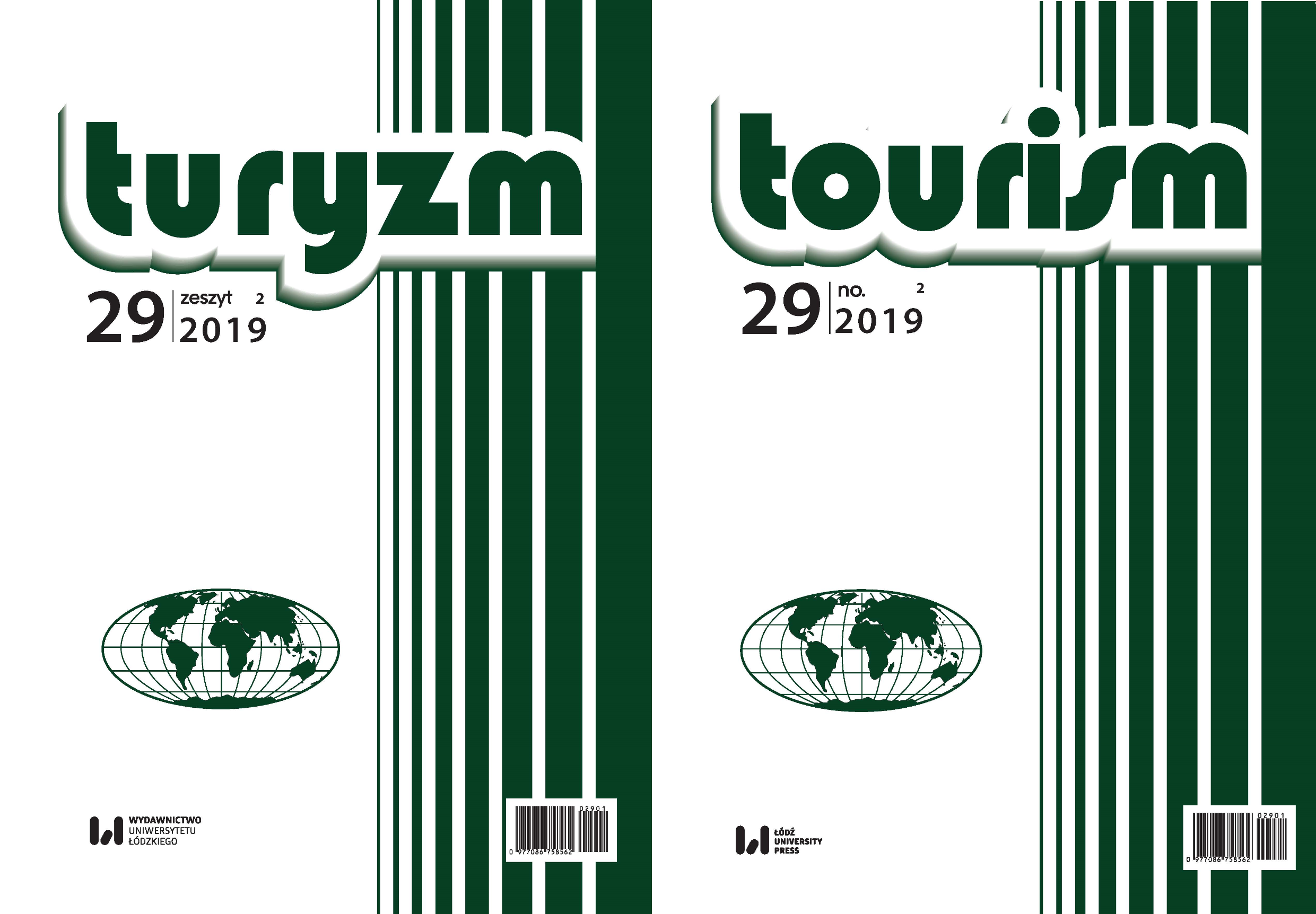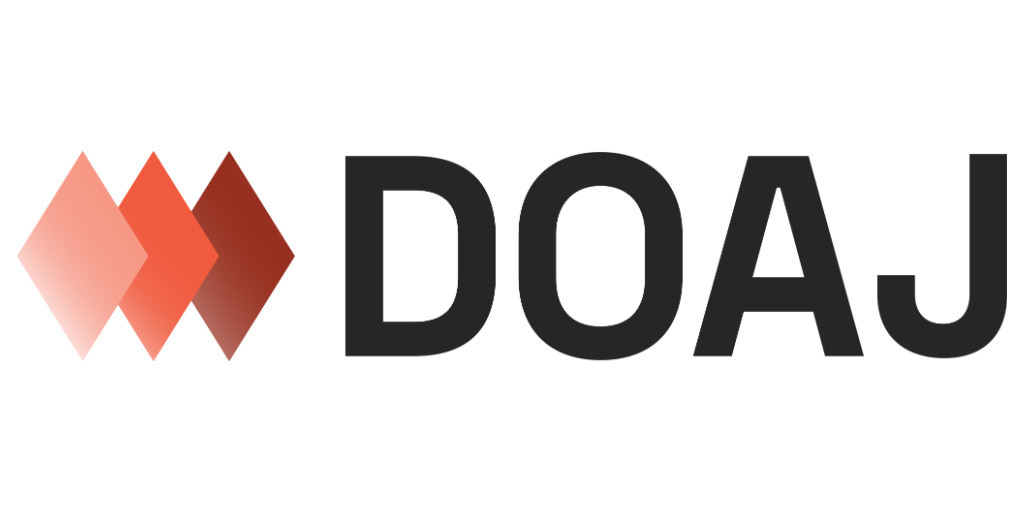Use of information and communication technology to access tourist information and services: The results of research conducted among Polish tourists in Małopolska Voivodeship
DOI:
https://doi.org/10.18778/0867-5856.29.2.10Keywords:
information and communication technology, tourist information and services, surveys, focus group researchAbstract
Information and communication technology (ICT) is widely used to access tourist information and services, and as a result using digital tools and sources influences tourist behaviour. The main goal of this paper, based on research, is to describe the behaviours and opinions of tourists who used ICT before travelling. The results include the evaluation of the usefulness of digital tools from a tourist’s point of view, and indicates that tourists are interested in using ICT. Respondents aged over 35, who are living in cities and have had at least secondary education or a university degree, are more active users of digital tools. Websites, mobile applications and other ICT uses have been treated by respondents primarily as a source of tourist information in its widest sense, and a tool which facilitates the process of planning travel routes and purchasing travel-related services. Social media, which facilitate sharing travel-related content, also have a major significance.
Downloads
References
Amaro, S., Duarte, P. (2015). An integrative model of consumers’ intentions to purchase travel online. Tourism Management, 46, 64-79.
Google Scholar
Berbeka, J. (2017). Analiza wykorzystania technologii informacyjnych i komunikacyjnych przez odwiedzających Kraków. In: J. Berbeka, K. Borodako (eds), Technologie informacyjne i komunikacyjne na rynku turystycznym (pp. 153-171). Warszawa: Wydawnictwo C.H. Beck.
Google Scholar
Buhalis, D. (2003). eTourism: Information technology for strategic tourism management. Essex: Pearson Education Limited.
Google Scholar
Buhalis, D., Law, R. (2008). Progress in information technology and tourism management: 20 years on and 10 years after the Internet – The state of eTourism research. Tourism Management, 29 (4), 609-623.
Google Scholar
Buhalis, D., O’Connor, P. (2005). Information communication technology revolutionizing tourism. Tourism Recreation Research, 30 (3), 7-16.
Google Scholar
Buhalis, D., Leung, D., Law, R. (2011). eTourism: Critical information and communication technologies for tourism destinations. In: Y. Wang, A. Pizam (eds), Destination marketing and management: Theories and applications (pp. 205-224). Oxford: CAB International.
Google Scholar
Gaworecki, W.W. (2007). Turystyka. Warszawa: Polskie Wydawnictwo Ekonomiczne.
Google Scholar
Giddens, A. (2008). Socjologia. Warszawa: Wydawnictwo Naukowe PWN.
Google Scholar
Gretzel, U., Sigala, M., Xiang, Z., Koo, Ch. (2015). Smart tourism: Foundations and developments. Electronic Markets, 25 (3), 179-188.
Google Scholar
Hall, M.C. (2006). Space-time accessibility and the TALC: The role of geographies of spatial interaction and mobility in contributing to an improved understanding of tourism. In: R. Butler (ed.), The tourism area life cycle: Conceptual and theoretical issues. Part 2 (pp. 83-100). Clevedon-Buffalo-Toronto: Channel View Publications.
Google Scholar
Horner, S., Swarbrooke, J. (2016). Consumer behaviour in tourism. Oxon-New York: Routledge.
Google Scholar
Jakubowska, M. (2018). Diagnoza form turystyki popularyzowanych przez blogerów podróżniczych w Polsce. Studia Oeconomica Posnaniensia, 6 (10), 76-92.
Google Scholar
Jaremen, D.E., Michalska-Dudek, I., Rapacz, A. (2016). Wirtualizacja zachowań konsumentów na rynku turystycznym jako źródło wiedzy w podejmowaniu decyzji marketingowych. Studia i Prace Wydziału Nauk Ekonomicznych i Zarządzania Uniwersytetu Szczecińskiego, 43 (2), 85-93.
Google Scholar
Jednoralska, A. (2016). Profil polskiego blogera podróżniczego – blogerzy podróżniczy jako inicjatorzy alternatywnego podróżowania wśród Polaków. Turystyka i Rekreacja, 13 (2), 29-33.
Google Scholar
Kachniewska, M. (2011). Wpływ nowych technologii na rynek usług pośredników turystycznych. Zeszyty Naukowe Kolegium Gospodarki Światowej, 32, 239-258.
Google Scholar
Kachniewska, M. (2014). Big data analysis jako źródło przewagi konkurencyjnej przedsiębiorstw i regionów turystycznych. Folia Turistica, 32, 35-54.
Google Scholar
Kachniewska, M. (2017). Zmiany na rynku turystycznym. Nowe modele biznesowe i polityka turystyczna. Studia Oeconomica Posnaniensia, 5 (4), 183-207.
Google Scholar
Kim, D.-Y., Park, J., Morrison, A.M. (2008). A model of traveller acceptance of mobile technology. International Journal of Tourism Research, 10, 393-407.
Google Scholar
Kotler, P., Bowen, J.T., Makens, J.C. (2006). Marketing for hospitality and tourism. Upper Saddle River: Prentice-Hall.
Google Scholar
Kowalczyk, A. (2000). Geografia turyzmu. Warszawa: Wydawnictwo Naukowe PWN.
Google Scholar
Kubiak, K. (2015). Ocena wybranych aplikacji mobilnych w opinii użytkowników. Zeszyty Naukowe Uniwersytetu Szczecińskiego, 875. Problemy Zarządzania, Finansów i Marketingu, 41 (2), 83-93.
Google Scholar
Law, R., Buhalis, D., Cobanoglu, C. (2014). Progress on information and communication technologies in hospitality and tourism. International Journal of Contemporary Hospitality Management, 26 (5), 727-750.
Google Scholar
Lisowska, A., Wieszaczewska. A. (2017). Santiago de Compostela jako ważna destynacja turystyki pielgrzymkowej – obraz pielgrzymowania w narracjach blogów podróżniczych. Turystyka Kulturowa, 3, 74-95.
Google Scholar
Majewska, J., Napierała, T., Adamiak, A. (2016). Wykorzystanie nowych technologii i informacji do opisu przestrzeni turystycznej. Folia Turistica, 41, 309-338.
Google Scholar
Marciszewska, B. (2010). Produkt turystyczny a ekonomia doświadczeń. Warszawa: Wydawnictwo C.H. Beck.
Google Scholar
Meyer, B. (2015). Współczesne trendy w turystyce i rekreacji. In: B. Meyer (ed.), Obsługa uczestników turystyki i rekreacji (pp. 29-33). Warszawa: Wydawnictwo Difin.
Google Scholar
Mika, M. (2014). Założenia i determinanty podtrzymywalności lokalnego rozwoju turystyki. Kraków: Instytut Geografii i Gospodarki Przestrzennej Uniwersytetu Jagiellońskiego w Krakowie.
Google Scholar
Morozova, I. (2016). Blog podróżniczy jako przestrzeń dla kreowania i komunikowania wzorców podróży. Folia Turistica, 40, 119-133.
Google Scholar
Munar, A.M., Jacobsen, J.K.S. (2014). Motivations for sharing tourism experiences through social media. Tourism Management, 43, 46-54.
Google Scholar
Neuhofer, B., Buhalis, D., Ladkin, A. (2012). Conceptualising technology enhanced destination experiences. Journal of Destination Marketing & Management, 1 (1-2), 36-46.
Google Scholar
Neuhofer, B., Buhalis, D., Ladkin, A. (2014). A typology of technology-enhanced tourism experiences. International Journal of Tourism Research, 16 (4), 340-350.
Google Scholar
Niemczyk, A. (2017a). Rola technologii mobilnych na rynku turystycznym. In: J. Berbeka, K. Borodako (eds), Technologie informacyjne i komunikacyjne na rynku turystycznym (pp. 93-116). Warszawa: Wydawnictwo C.H. Beck.
Google Scholar
Niemczyk, A. (2017b). Aplikacje mobilne jako determinanta zachowań turystycznych (na przykładzie Krakowa). Prace Naukowe Uniwersytetu Ekonomicznego we Wrocławiu, 473, 370-381.
Google Scholar
Niininen, O., Buhalis, D., March, R. (2007). Customer empowerment in tourism through consumer centric marketing (CCM). Qualitative Market Research: An International Journal, 10 (3), 265-281.
Google Scholar
Panasiuk, A. (2015). Nowe technologie informacyjne w kształtowaniu innowacji na rynku turystycznym. Rozprawy Naukowe Akademii Wychowania Fizycznego we Wrocławiu, 49, 99-106.
Google Scholar
Pawłowska, A. (2015). Turysta 2.0 – wyniki badania ankietowego nt. wykorzystania nowych technologii przez turystów w województwie małopolskim. Episteme. Czasopismo Naukowo-Kulturalne, 2 (23), 271-282.
Google Scholar
Pawłowska, A. (2016a). Tourists and social media: Already inseparable marriage or still a long-distance relationship? Analysis of focus group study results conducted among tourists using social media. World Scientific News. International Scientific Journal, 57, 106-115.
Google Scholar
Pawłowska, A. (2016b). Aplikacje mobilne jako nowe narzędzie w informacji turystycznej. Wyniki badań przeprowadzonych w województwie małopolskim. In: I. Miciuła, I. Nowakowska-Grunt (eds), Wybrane aspekty w zarządzaniu organizacją w XXI w. Innowacje – Gospodarka – Społeczeństwo (pp. 371-383). Katowice: Wydawnictwo Naukowe Sophia.
Google Scholar
di Pietro L., di Virgilio F., Pantano E., 2012, Social network for the choice of tourist destination: Attitude and behavioural intention. Journal of Hospitality and Tourism Technology, 3 (1), 60-76.
Google Scholar
Poczta, J., Mariianchuk, M. (2013). Samoświadomość turysty kulturowego a wizualność turystycznego świata, powszechność fotografii i ich wpływ na jakość turystycznego przeżywania. Turystyka Kulturowa, 11, 32-47.
Google Scholar
Rasińska, R., Siwiński, W. (2015). Aplikacje mobilne jako innowacyjne źródła informacji turystycznej dla studentów. Rozprawy Naukowe Akademii Wychowania Fizycznego we Wrocławiu, 50, 74-80.
Google Scholar
Richards, G. (2002). Tourism attraction system. Exploring cultural behavior. Annals of Tourism Research, 4 (29), 1048-1064.
Google Scholar
Rudnicki, M. (2017). Rozwiązania informacyjno-komunikacyjne w przedsiębiorstwach turystycznych. In: J. Berbeka, K. Borodako (eds), Technologie informacyjne I komunikacyjne na rynku turystycznym (pp. 31-64). Warszawa: Wydawnictwo C.H. Beck.
Google Scholar
Seweryn, R. (2015). Profil turysty pozyskującego informacje o destynacji z mediów społecznościowych (na przykładzie odwiedzających Kraków). Prace Naukowe Uniwersytetu Ekonomicznego we Wrocławiu, 379, 439-447.
Google Scholar
Smul, P. (2013). Wykorzystanie Internetu w sprzedaży i promocji usług turystycznych. Zeszyty Naukowe Wyższej Szkoły Humanitas. Zarządzanie, 14 (1), 88-104.
Google Scholar
Xiang, Z., Gretzel, U. (2010). Role of social media in online travel information search. Tourism Management, 31, 179-188.
Google Scholar
Xiang, Z., Magnini, V.P., Fesenmaier, D.R. (2015). Information technology and consumer behavior in travel and tourism: Insights from travel planning using the internet. Journal of Retailing and Consumer Services, 22, 244-249.
Google Scholar
Zajadacz, A. (2014). Pokolenia X, Y, Z a fenomen turystyki. In: J. Śledzińska, B. Włodarczyk (eds), Międzypokoleniowe aspekty turystyki (pp. 55-68). Warszawa: Wydawnictwo PTTK Kraj.
Google Scholar
Zajadacz, A. (2017). Dyssatysfakcja w przestrzeni turystycznej. Negatywne opinie użytkowników Tripadvisor na temat głównych atrakcji turystycznych wybranych miast w Polsce. Prace i Studia Geograficzne, 62 (3), 63-88.
Google Scholar
Zawadzki, P. (2018). Aplikacje mobilne jako element systemu informacji turystycznej. Zeszyty Naukowe Uniwersytetu Ekonomicznego w Krakowie, 4, 85-101.
Google Scholar
Zehrer, A., Pechlaner, H., Hölzl, B. (2005). The development of a Destination Management System (DMS) in South Tyrol. Anatolia, 16 (2), 147-161.
Google Scholar
Zeng, B., Gerritsen, R. (2014). What do we know about social media in tourism? A review. Tourism Management Perspectives, 10, 27-36.
Google Scholar
Downloads
Published
How to Cite
Issue
Section
License

This work is licensed under a Creative Commons Attribution-NonCommercial-NoDerivatives 4.0 International License.










